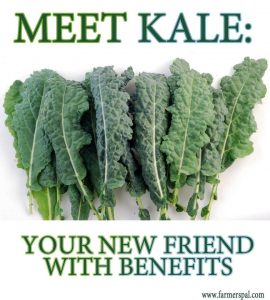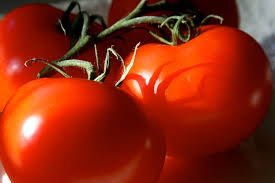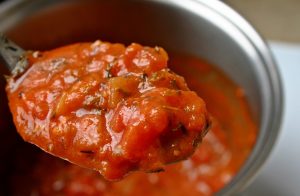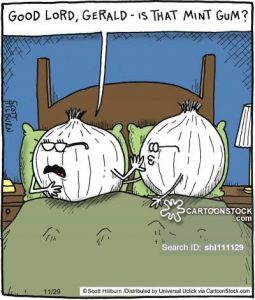Should You Cook Your Vegetables or Eat Them Raw?
A few years ago I bought a food dehydrator and started making kale chips.  This slow method of drying kale retains all of what is a very impressive profile of nutrients. However, this took hours for the kale to be ready to eat and that left way to much time to snack on other, say, less healthy choices. Enter the Microwave. A friend told me she made Kale chips in the microwave in 3-4 minutes-NOW we’re talking! I put away my dehydrator and have been enjoying this speedy way of getting my crispy crunchy fix ever since (because sometimes, don’t you just need that crunch?).
This slow method of drying kale retains all of what is a very impressive profile of nutrients. However, this took hours for the kale to be ready to eat and that left way to much time to snack on other, say, less healthy choices. Enter the Microwave. A friend told me she made Kale chips in the microwave in 3-4 minutes-NOW we’re talking! I put away my dehydrator and have been enjoying this speedy way of getting my crispy crunchy fix ever since (because sometimes, don’t you just need that crunch?).
Occasionally there is talk of the danger of microwave cooking. And I often wondered if cooking the kale in the microwave was destroying the very nutrients I was trying to get by eating it. Finally, I decided to dig into the research to find out. In the interest of saving time is microwaving kale, and really ALL vegetables, a just waste of good nutrition?
Here’s what I found;
ALL cooking methods deplete SOME of the nutrients in vegetables but microwaving, along with roasting and grilling allow the highest retention of nutrients overall, while boiling and pressure cooking cause the greatest losses, at least in the case of water soluble vitamins such as The B vitamins including Thiamine, Niacin, Pantothenic Acid, and Folate, along with Vitamin C which are the most susceptible to leaching out in the cooking liquid.
One way to combat this is cooking in a broth you will incorporate into the meal such as a stew. This way you will retain at least some of the benefit of the vitamins from the cooking water.
However, your best bet is to use as little water as possible and cook for the shortest amount of time at the lowest heat to retain the most amounts of nutrients.
They say you learn something new every day. I had assumed that raw vegetables were always superior to cooked, and cooking them was simply a way to make them more palatable. However: as with so many things in life, it is not so cut and dried. While some vitamins such as the B Vitamin (aka Thiamin, Riboflavin, Niacin, Pantothenic Acid, and Folate) and Vitamin C are particularly sensitive and break down when exposed to heat, Others are actually enhanced by cooking because the heat breaks down the tough cell walls allowing our bodies to better absorb the antioxidants and carotenoids found within.
So, while some vegetables are more nutritious when eaten raw other vegetables really shine only after they have been cooked.
Asparagus contains Vitamins A and E, these vitamins are tucked away behind fibrous cell walls. Cooking asparagus breaks down these cell walls giving access to the vitamins contained. Steaming asparagus brings out its cancer-fighting properties.
Tomatoes; who doesn’t love ripe juicy tomatoes fresh from the garden?

Yet you’ll absorb even more of their cancer-fighting lycopene when they’ve been cooked. In fact: Lycopene levels in the blood have been shown to increase 80% when sautéed’ in olive oil. Whether you cook your tomatoes or eat them raw be sure to include fat as lycopene needs the presence of fat to be absorbed. ( you can read more about Tomatoes here)

Mushrooms: Cooking mushrooms break down the cell walls to release the powerful antioxidant ergothioneine. Cooking also makes the potassium more bioavailable. You may have heard that you should never eat raw mushrooms as they contain a toxic compound called agaritine. I stopped eating raw mushrooms in my salads years ago after learning this from a well-known naturopathic doctor. However, digging into the research for this article I learned that this toxin while present in a fresh picked mushroom, is broken down not just by cooking but is almost totally degraded within 48 hours simply by refrigerating or storing. And mushrooms are worth a second look. These little fungi hold an impressive amount of nutrition tucked inside. See health benefits of mushrooms.
Carrots: Beta-carotene is a powerful antioxidant, abundant in carrots, that is crucial for countless systems in the body. It can reduce risk of certain cancers, lower your risk of heart disease, and is know for is positive impact on eye health among other things.
Cooking carrots increases their beta-carotene by more than 6x. Beta-carotene is another of the fat-soluble vitamins so be sure to include fat when eating them for better absorption.
Side note: While cooking carrot will increase their beta-carotene, carrots are also high in polyphenols another powerful antioxidant in the fight against inflammation, cancer, and cardiovascular disease These Polyphenols are totally lost when cooked so enjoy carrots alongside your roast AND in your salad or veggie tray…
Spinach: I particularly like beautiful rich dark green Spinach in my salad or as the greens in my smoothie, but spinach is another vegetable that falls in that gray area. While spinach is rich in Folate, Niacin, and Riboflavin as well as Vitamin C and Potassium when eaten raw, these heat-sensitive vitamins are lost during cooking. Yet vitamins A and E, along with minerals such as Calcium, Iron, Zinc and Magnesium and Carotenoids such as Beta-carotene, Zeaxanthin, and Lutein are all better absorbed after cooking.
On the flip side, some vitamins and minerals can’t handle the heat so foods containing these lose valuable nutrients when cooked.
Beets are an excellent source of Folate. This nutrient is important for brain, heart, and colon health as well the health of a developing fetus … however cooking your beets will zap more than 25% of this important nutrient.
Broccoli, along with cabbage, is better served raw, since cooking them puts the brakes on all important Myrosinase, an enzyme that helps remove carcinogens stored in the liver.

‘
Both Onions and Garlic contain the phytonutrient allicin. Eating Onions and Garlic raw helps preserve this nutrient that helps keep hunger at bay.
however it may help keep friends and loved ones at bay as well!
Red Peppers are rich in vitamin A, B6 C, K, Potassium, and Folate many of which are lost during cooking.
So the answer raw or cooked cannot be summed up with a definitive answer. It depends on the food in question as well as the cooking method i.e. steaming, boiling, roasting etc. and the nutrients you want more of.
But in the end, we don’t necessarily want to just eat a combination of vitamins and minerals. We want to eat FOOD and we want to enjoy our food even as we strive to eat healthily. That is why strict eat-this-don’t-eat-that diets are not the answer. The key is developing an eating plan that will support your health goals while being built around your taste buds, your cooking skills, your budget and your life.
Habit based nutrition coaching can help you do just that. So if you tired of trying to figure it out on your own, fed up with being told what foods you must give up to be successful in achieving a healthy body composition, and tired of trying (and failing) to rely on willpower to keep you on the ‘straight and narrow’; I can help.
If you are serious about getting off the diet rollercoaster for good, call today to learn more about 2BFit Nutrition Success.
Look Good Feel Good Live Better!
Stacia
